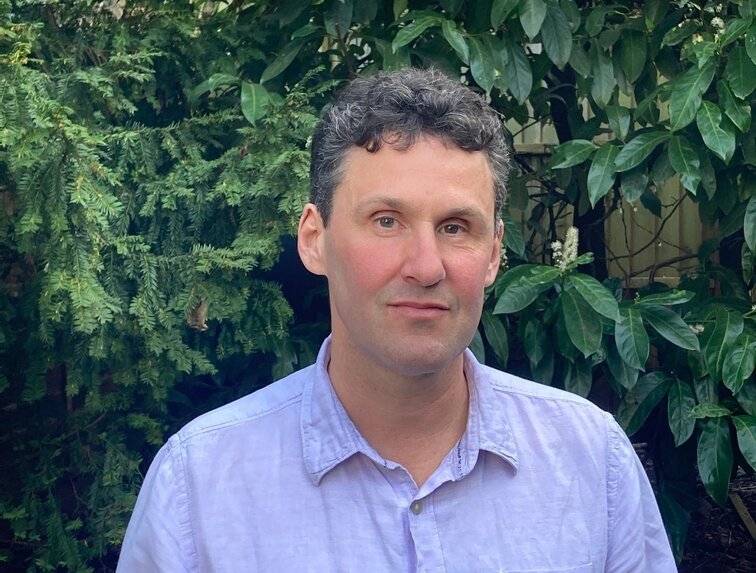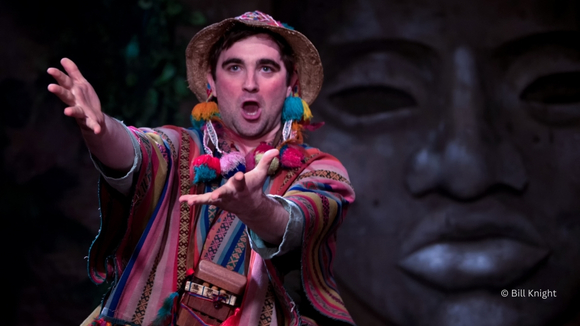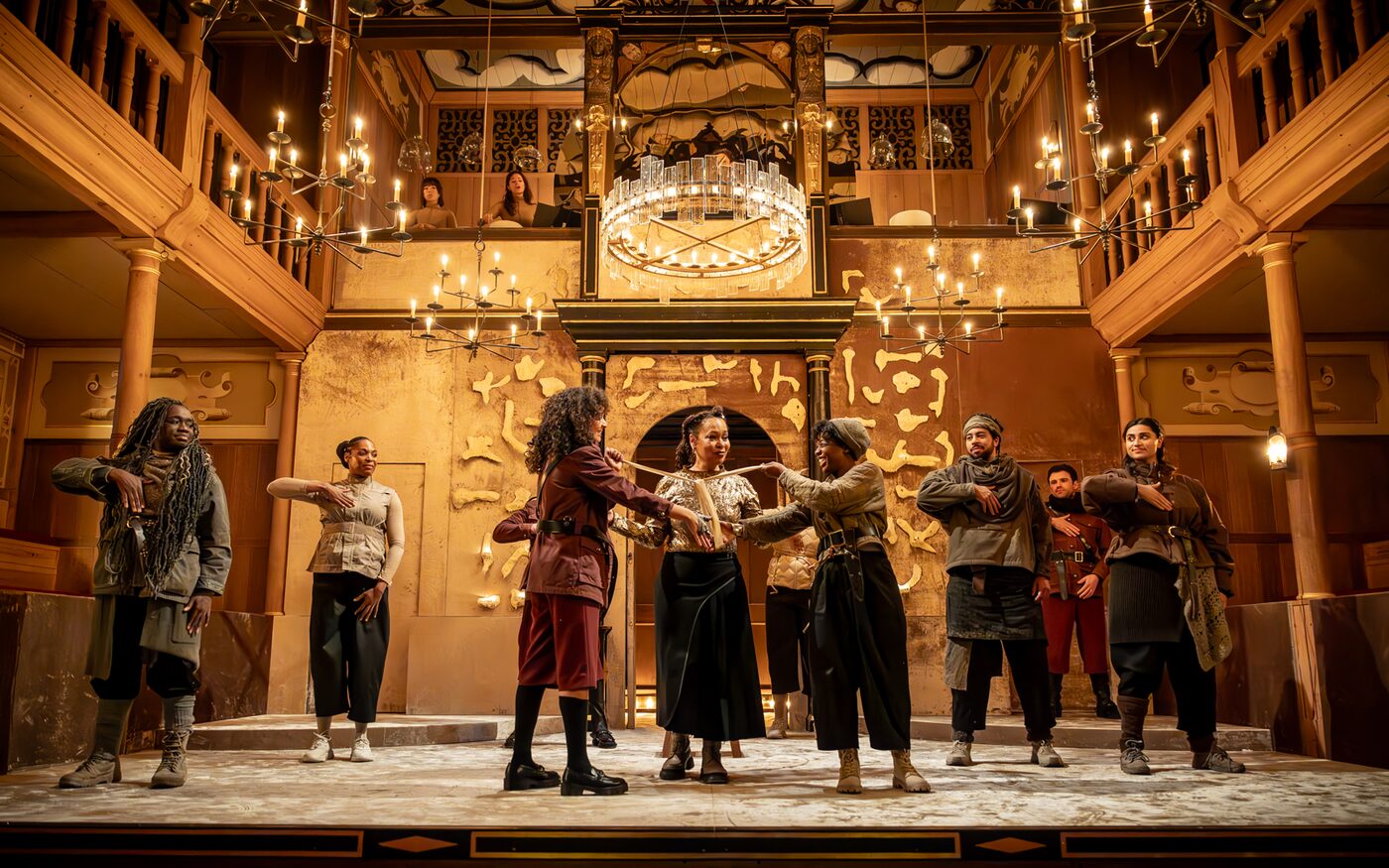by Chris Dobson.
Ben Brown is a British playwright whose plays include Larkin with Women, The Promise, Three Days in May, and A Splinter of Ice. His latest work, The End of the Night, will be available to stream on originaltheatreonline.com from July 4th. The Understudy spoke with Brown about the play ahead of its digital release.
Interview with Ben Brown
The End of the Night is about a secret meeting which took place between Heinrich Himmler, architect of the Holocaust, and a Swedish Jew, Norbert Masur, in April 1945. What inspired you to write about this topic?
I never thought I would write a play about the Holocaust, I thought I didn’t have anything to say that hadn’t already been said on that subject, and then just a few years ago I was reading a newspaper and there was a reference to the fact that Himmler had a masseur who persuaded him to meet and negotiate with a Jew. I discovered that this masseur was called Felix Kersten and he was the only person who could relieve Himmler’s terrible stomach cramps. I got hold of a copy of Kersten’s memoirs and I immediately saw the dramatic potential of this clandestine meeting, in which the lives of thousands of concentration camp prisoners were at stake. So that was my way into the play, and I later found that Norbert Masur had himself written an account of this meeting, so that was obviously a vital source too.
Have you written historical plays before and how do you approach the process of historical research?
Yes, I have written historical plays before, in fact my 2010 play The Promise was the first in a series of historical-political dramas of the 20th century, including Three Days in May and A Splinter of Ice, so The End of the Night is now my fourth play set during a 20th century conflict. I never planned to write these four 20th century war plays, but I discovered these moments in history which struck me as dramatic situations which I had to write about.
I’ve always been very interested in history and I’ve noticed that history has been a great source of drama for many playwrights, from Shakespeare to George Bernard Shaw. I never decide to write about a particular area or subject matter, I just tend to come across an incident or a meeting which I want to dramatise. In the words of Hamilton, I want to recreate ‘the room where it happened’, and I find that these kinds of pressure cooker dramas are well-suited to theatre as a medium.
The%20End%20of%20the%20NightTHEEND_2.JPG) |
| The End of the Night at Park Theatre. Photo: Mark Douet |
Despite its serious subject matter, there are some moments of levity in The End of the Night. Was it difficult striking the right tone in a play in which one of the main characters is a notorious mass murderer?
I never purposefully put humour in, but I find that in any human interaction, moments of humour, even it’s very black, tend to break out, so I just try to stay in the truth of the moment. I don’t look for humour, but you come across these ironies, and there is a fine line sometimes between humour and irony, and if humour comes out I let it be there. The things that Himmler says are sometimes so shocking, it is almost laughable. Felix Kersten, too, performs a Falstaffian role, providing a lot of the humour in an otherwise bleak play.
There are two Jewish characters in The End of the Night. Was it important to you that Jewish actors be cast in these roles?
I’m not someone who would want to restrict actors to only playing people very close to their own identities, but in the case of this play the director and I thought it made sense to cast Jewish actors in these roles. I don’t hold strong opinions about this, but it was definitely something that was considered and decided upon.
Can you describe some of the challenges posed by the pandemic to the staging of this play?
It was originally meant to be performed in September 2020, but once it did open in April 2022, I felt quite fortunate that covid cases were beginning to decline and we were able to have a smooth run, which my previous play A Splinter of Ice did not have. What’s clearly a bigger problem for theatre in general is that the habit of theatregoing has not yet returned to its pre-covid levels. I’m sure this will gradually come back, but it will obviously take time. In the case of The End of the Night, we got very good audiences which we were pleased about.
The%20End%20of%20the%20NightTHEEND_4.JPG) |
| The End of the Night at Park Theatre. Photo: Mark Douet |
Following Russia’s invasion of Ukraine, and in light of China’s vast network of concentration camps in Xinjiang, to what extent does The End of the Night speak just as much to our own time as about the past?
There’s a particular line in which Himmler says, “It was a mistake to call them concentration camps, we should have called them education camps”, which is of course exactly what the Uyghur camps in China are called, so I found that particularly chilling. Since the war in Ukraine started just before the play opened, that parallel has clearly been more in people’s minds, and anyone watching the play can’t help but hear those echoes, because we’re now in the biggest war in Europe since 1945, and in fact in the play Russia is very much closing in on Berlin.
Would you ever consider again writing about the Holocaust or Nazi Germany?
I don’t imagine I’ll write about the Holocaust or Nazi Germany again, unless I felt that I had something new to say. For me, I tend to come across something spontaneously which will inspire me to write on a topic, so I’m not really in control of the subject matter of my plays. I just need to be really fascinated by a topic, because writing is such a long process, usually involving a year of research and a year of writing and polishing, so it takes a lot of stamina.
Is The End of the Night directed primarily at English-speaking audiences, or could it also work in translation on the German stage, for example?
I’ve already had interest in the play from France, Germany and Sweden and in fact it is the only play I’ve written which doesn’t have any British characters. I would love to see a German production because that would be totally authentic, because of course the characters were all actually speaking in German. My previous plays have had runs abroad so I hope the same will be true of The End of the Night.
Now that The End of the Night has finished its run at Park Theatre, how can audiences see the play?
From July 4th, it will be available to stream on originaltheatreonline.com, and I think of all my plays The End of the Night is the most filmic. Original did a great job recording my last play, A Splinter of Ice, so I’m really excited to see their recording of The End of the Night.















